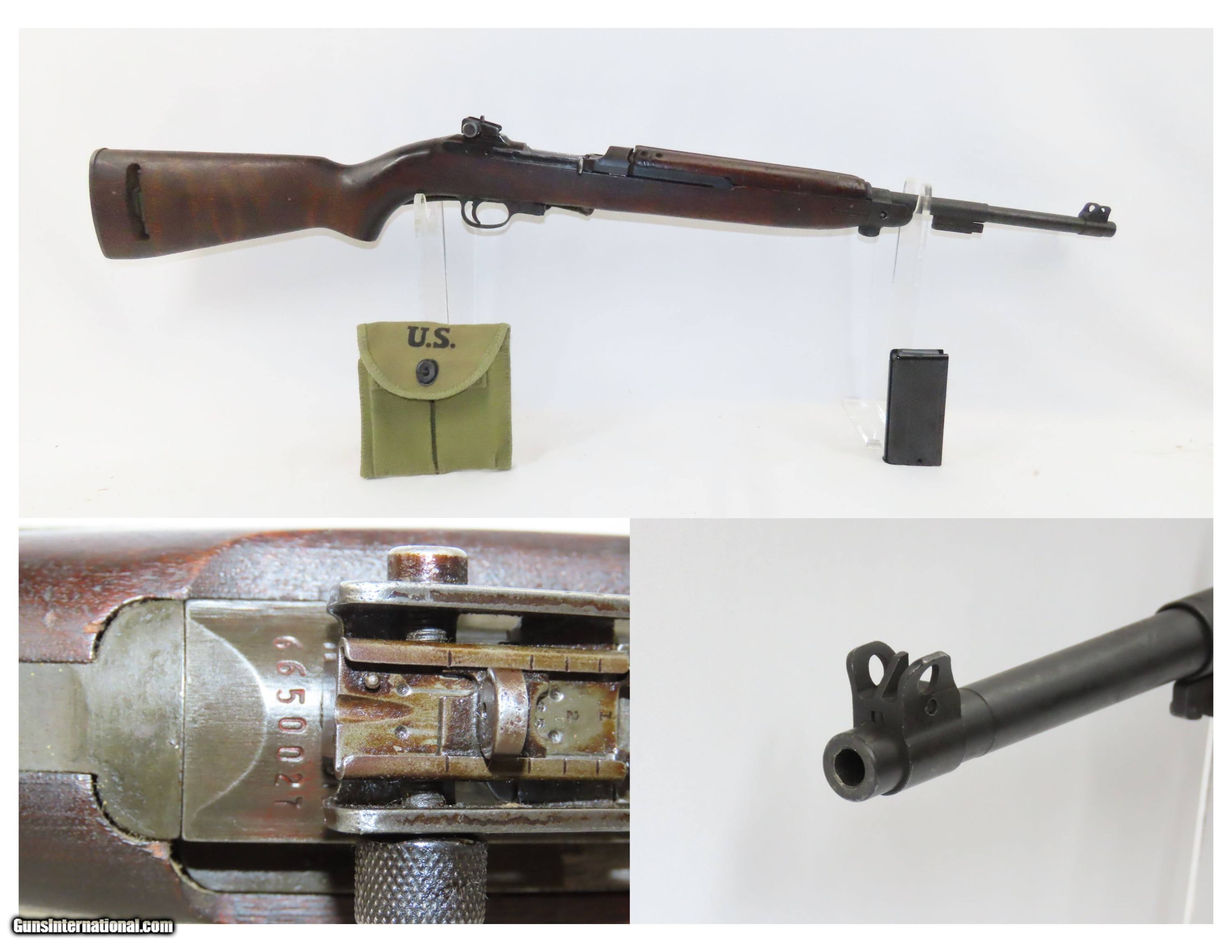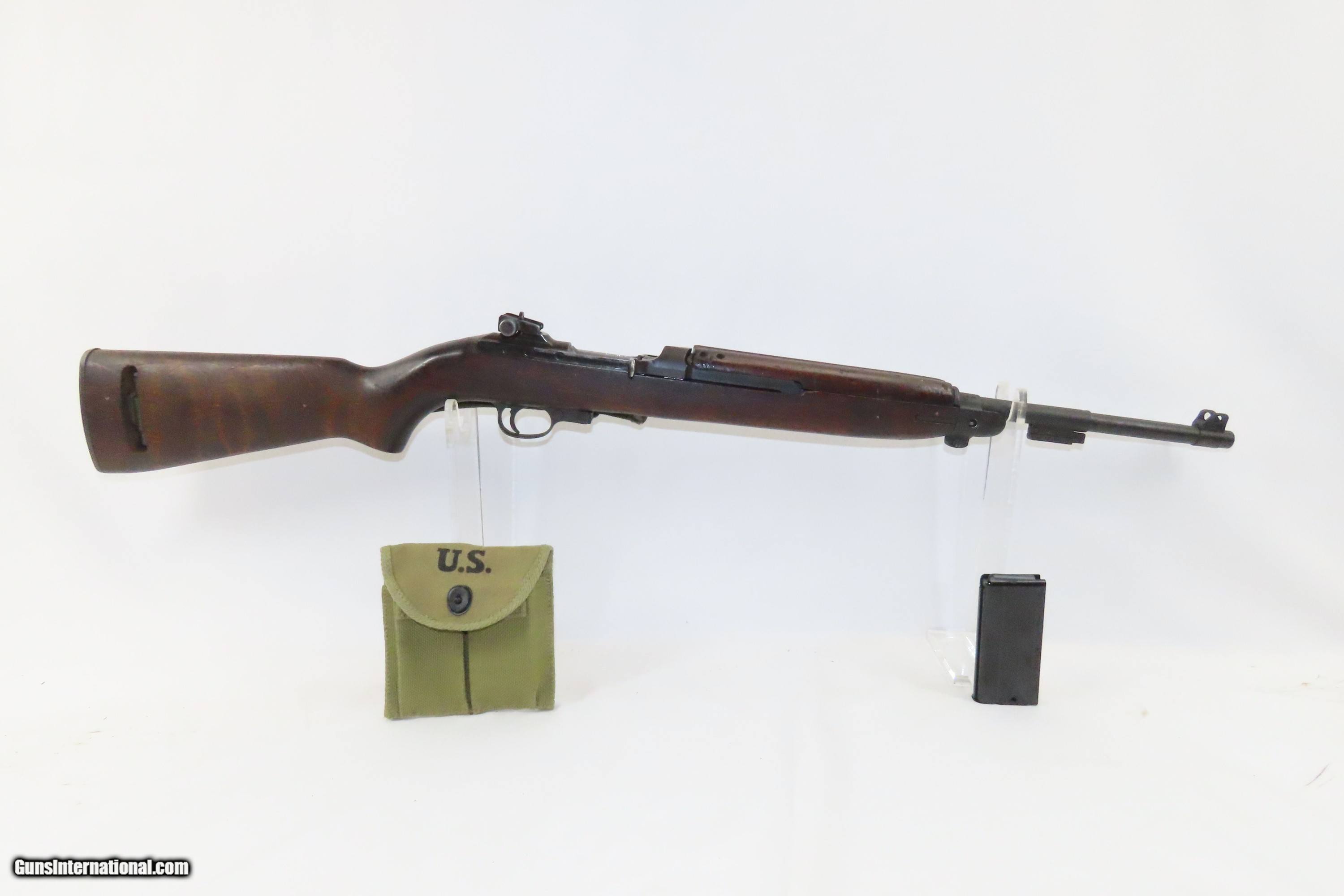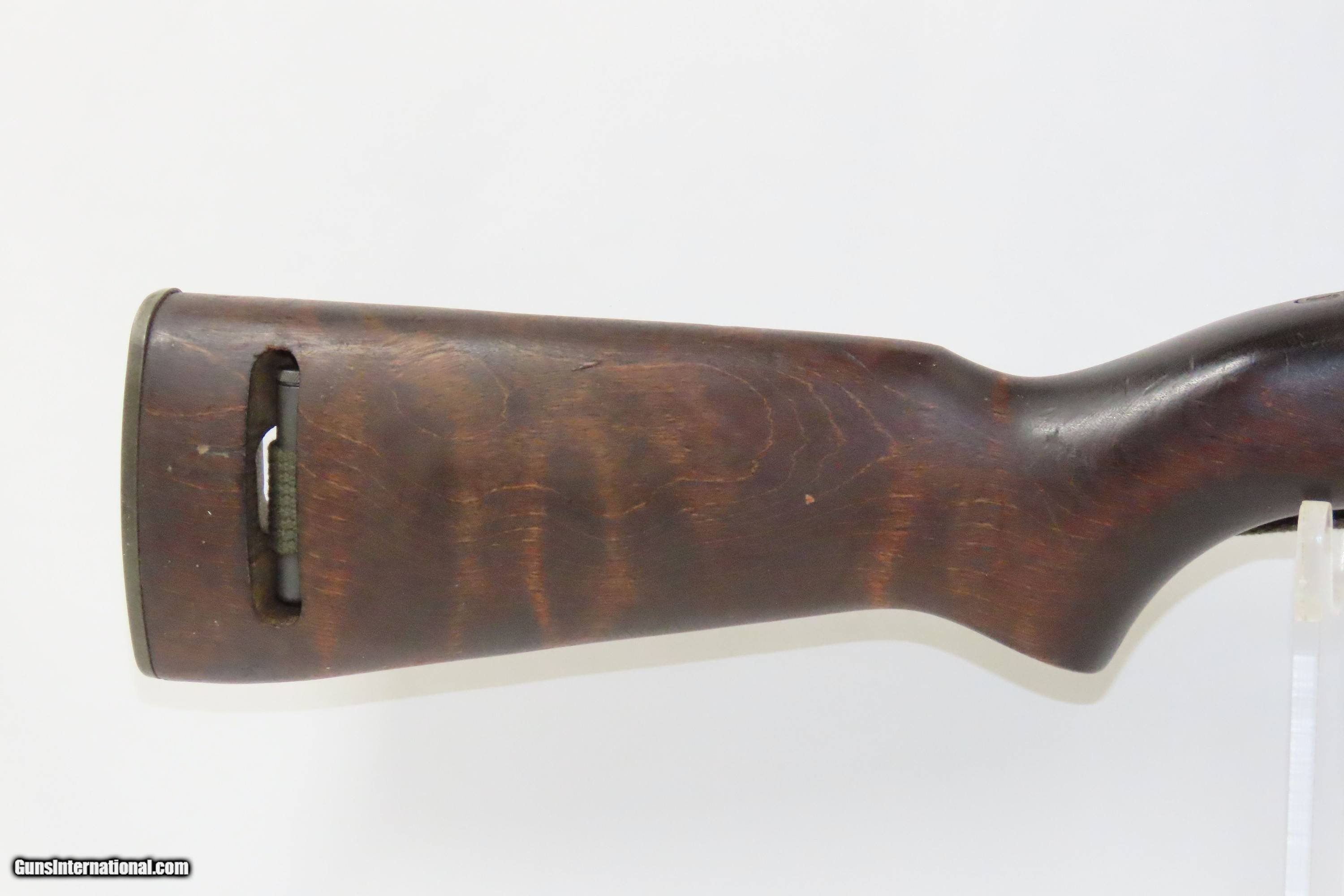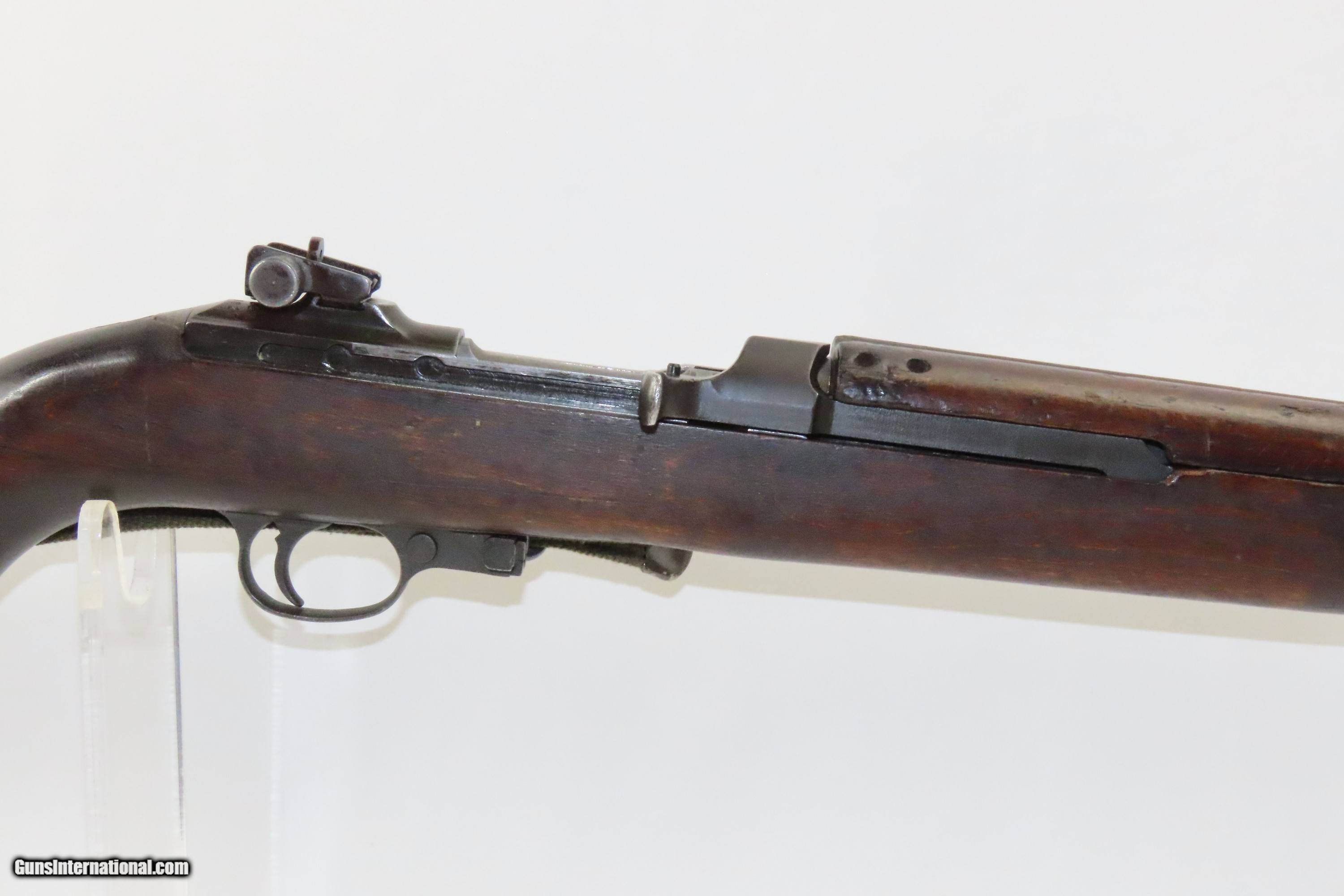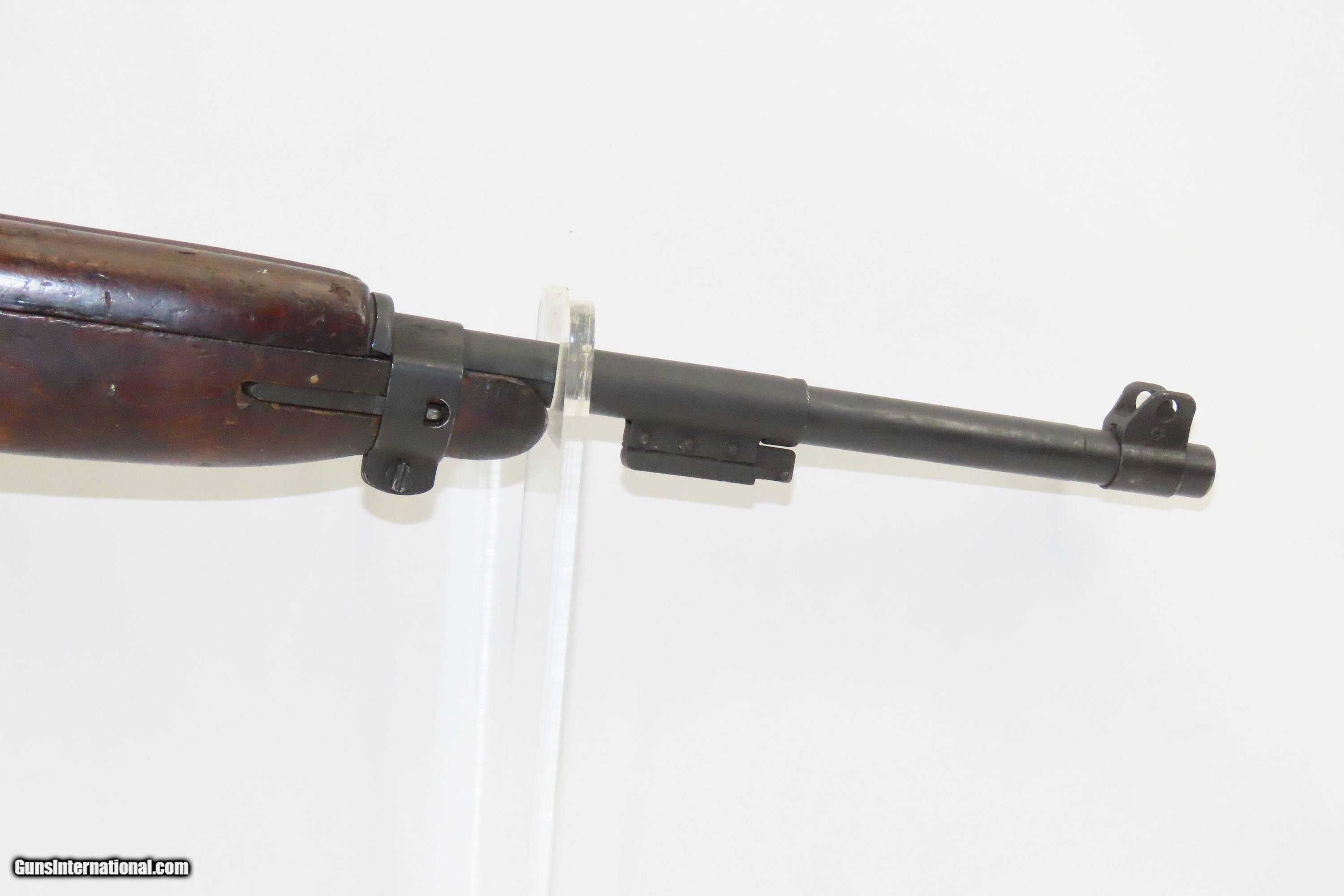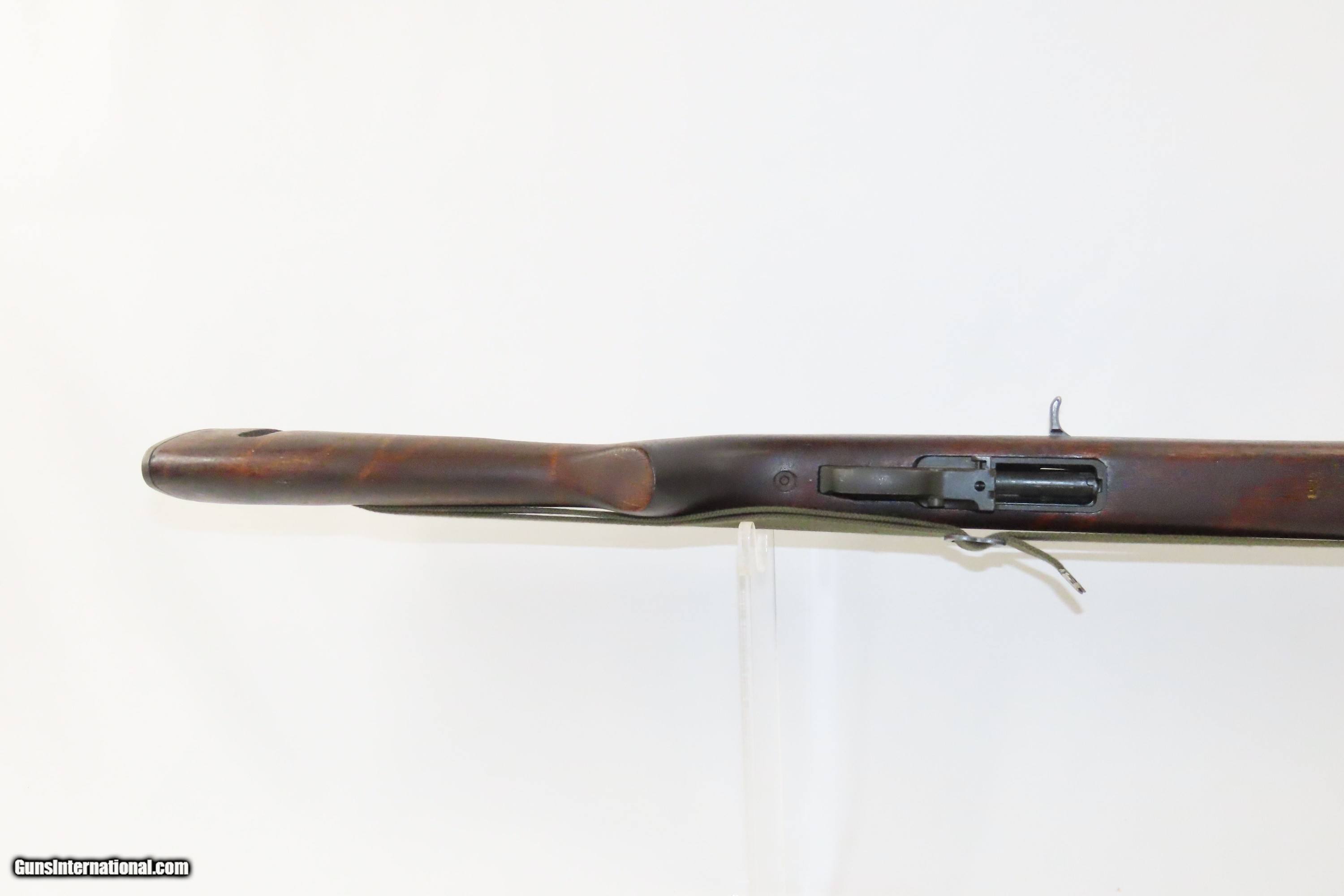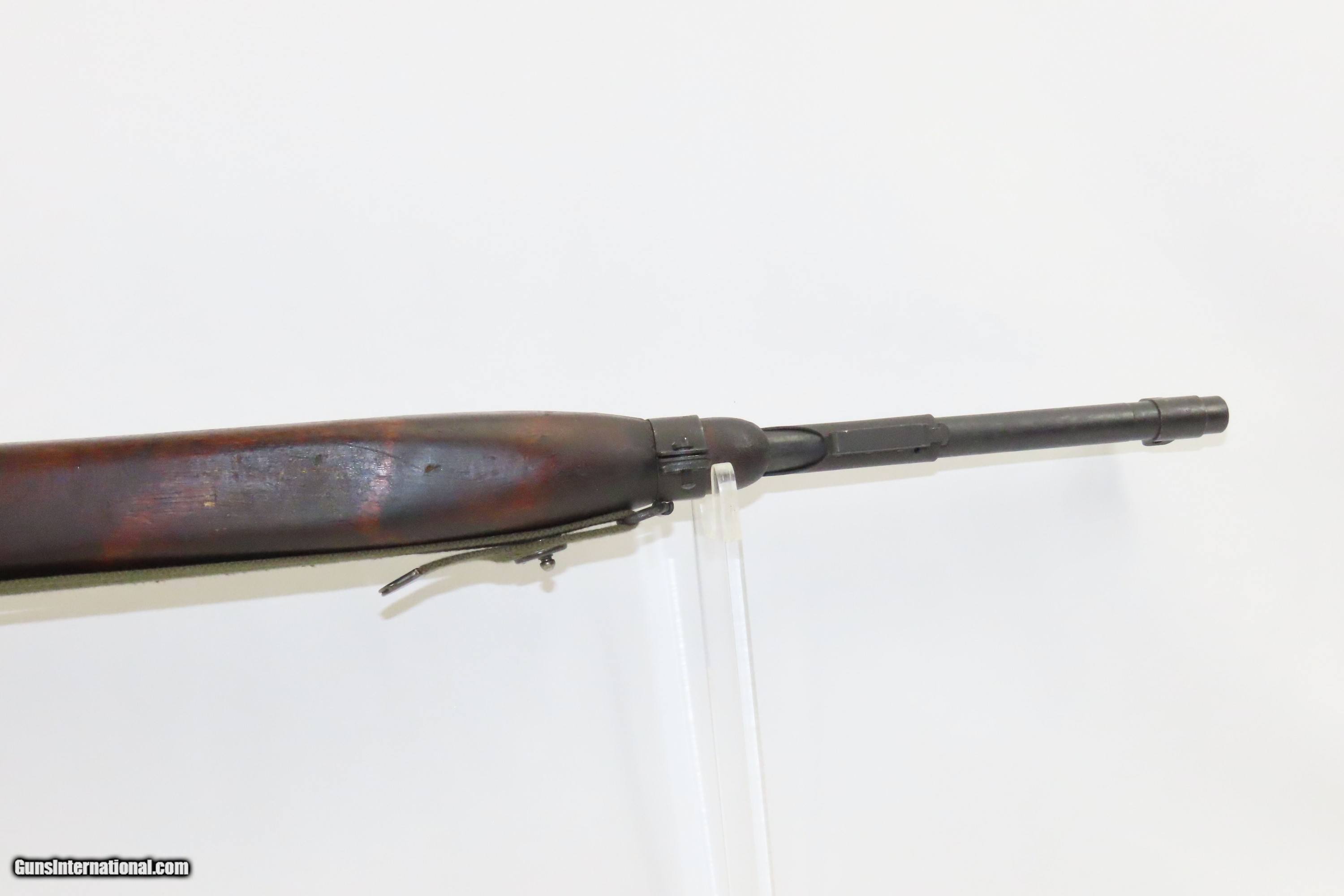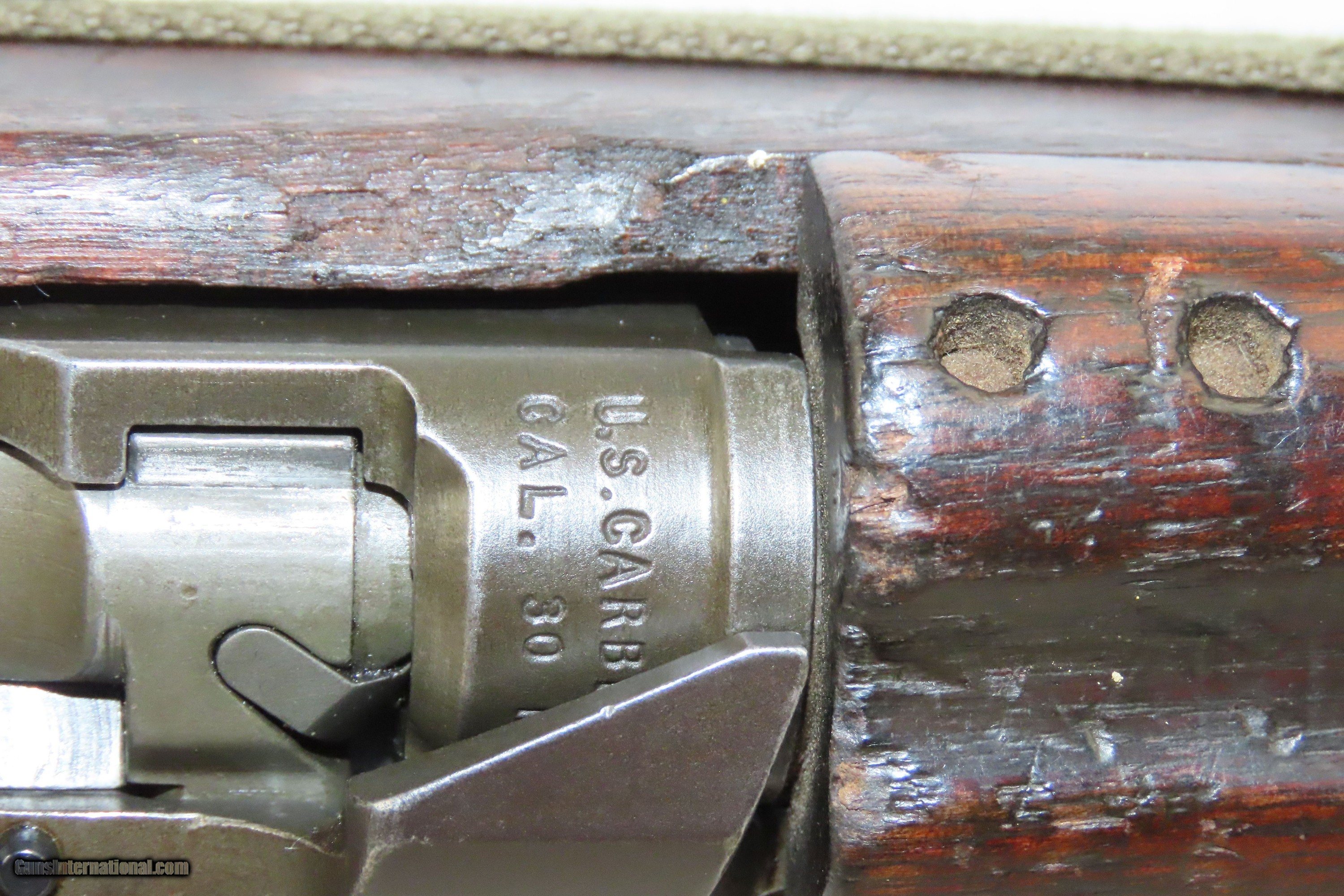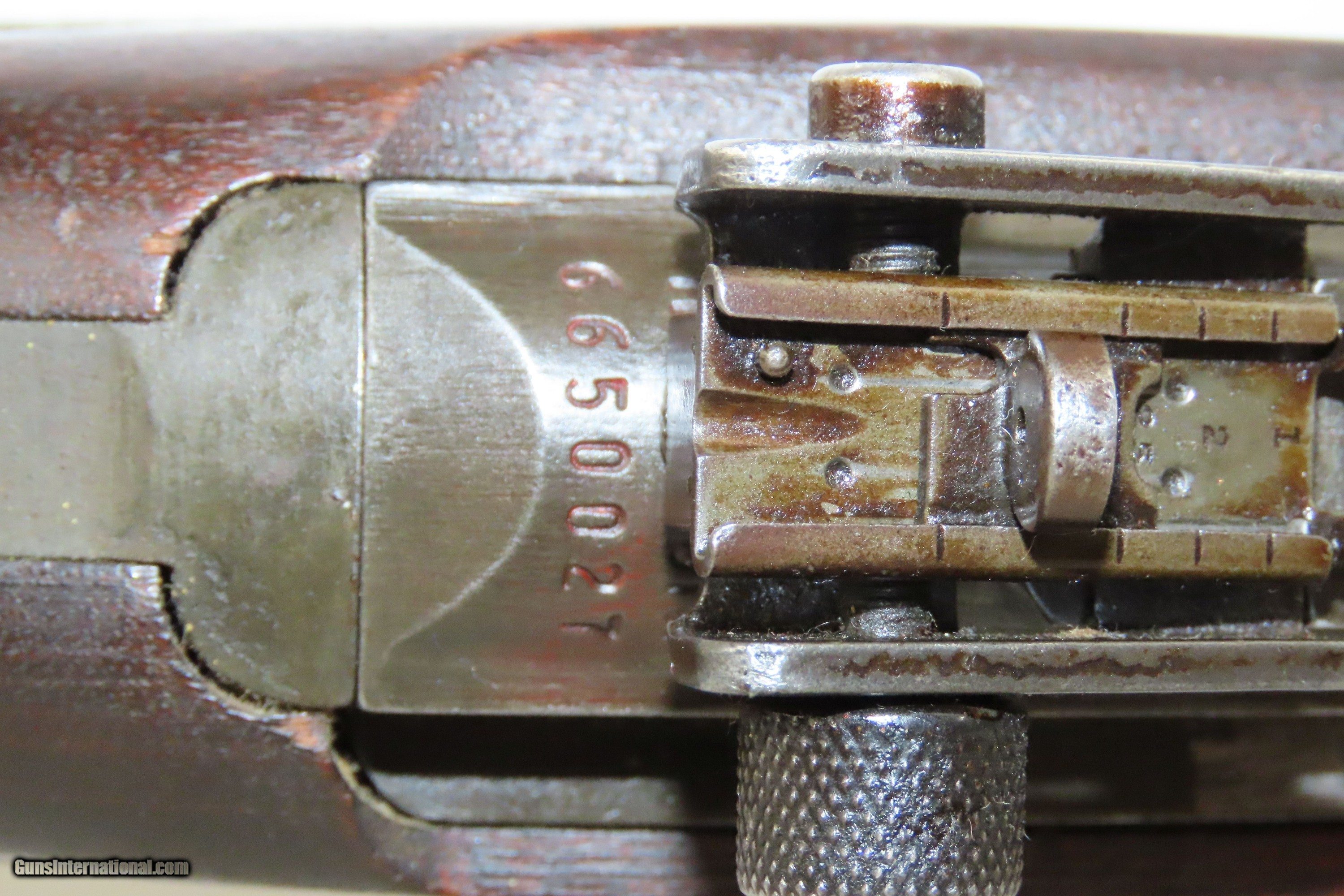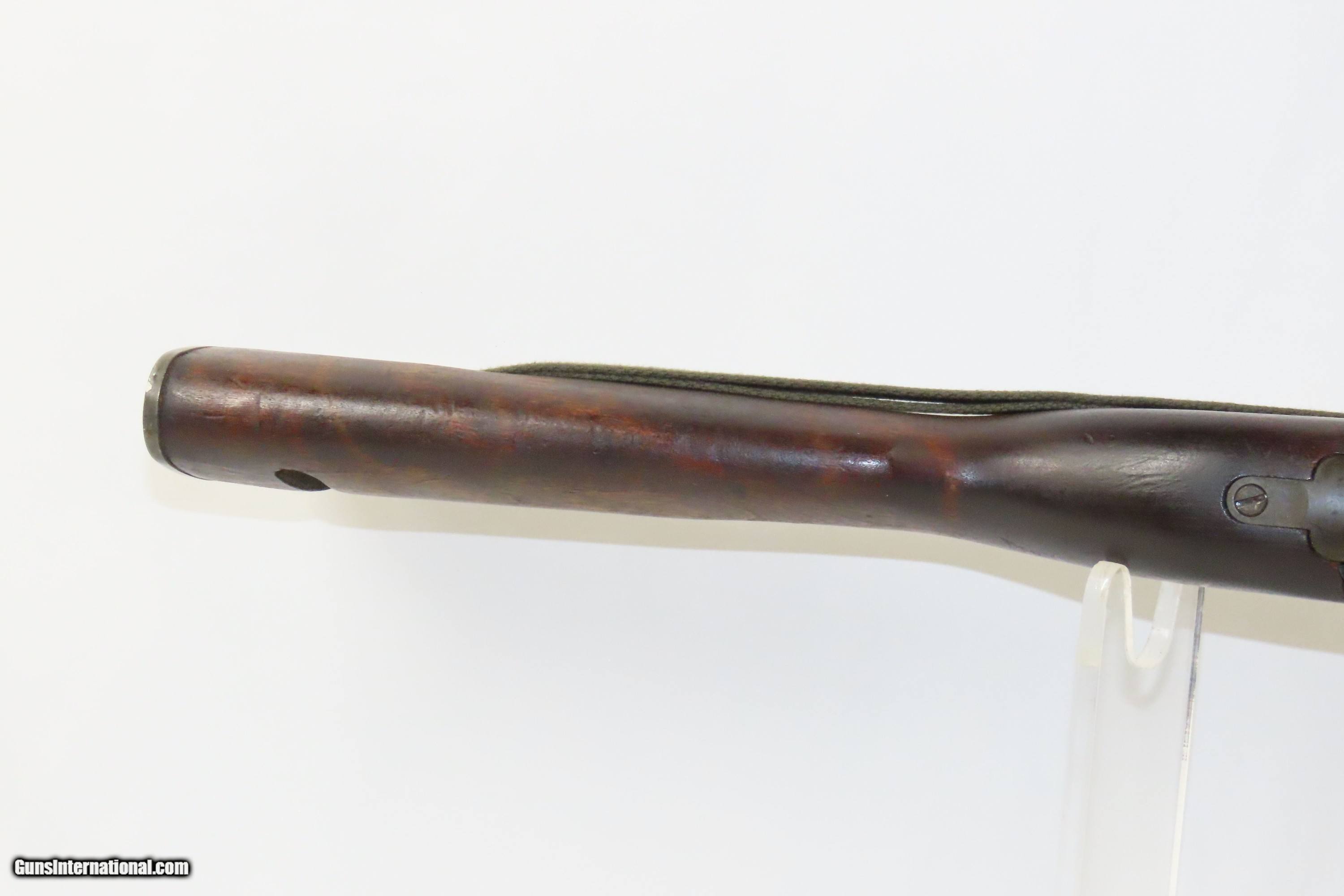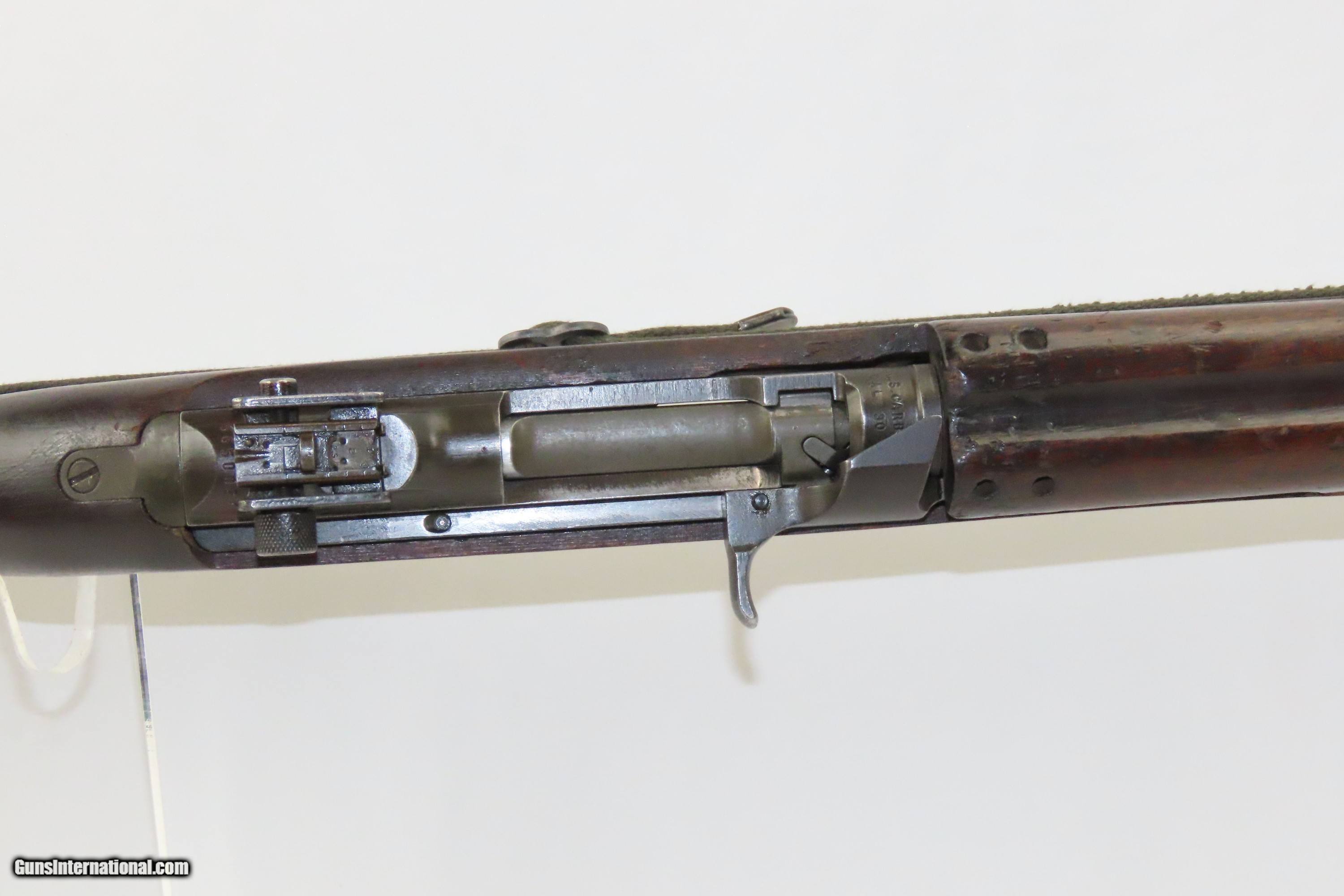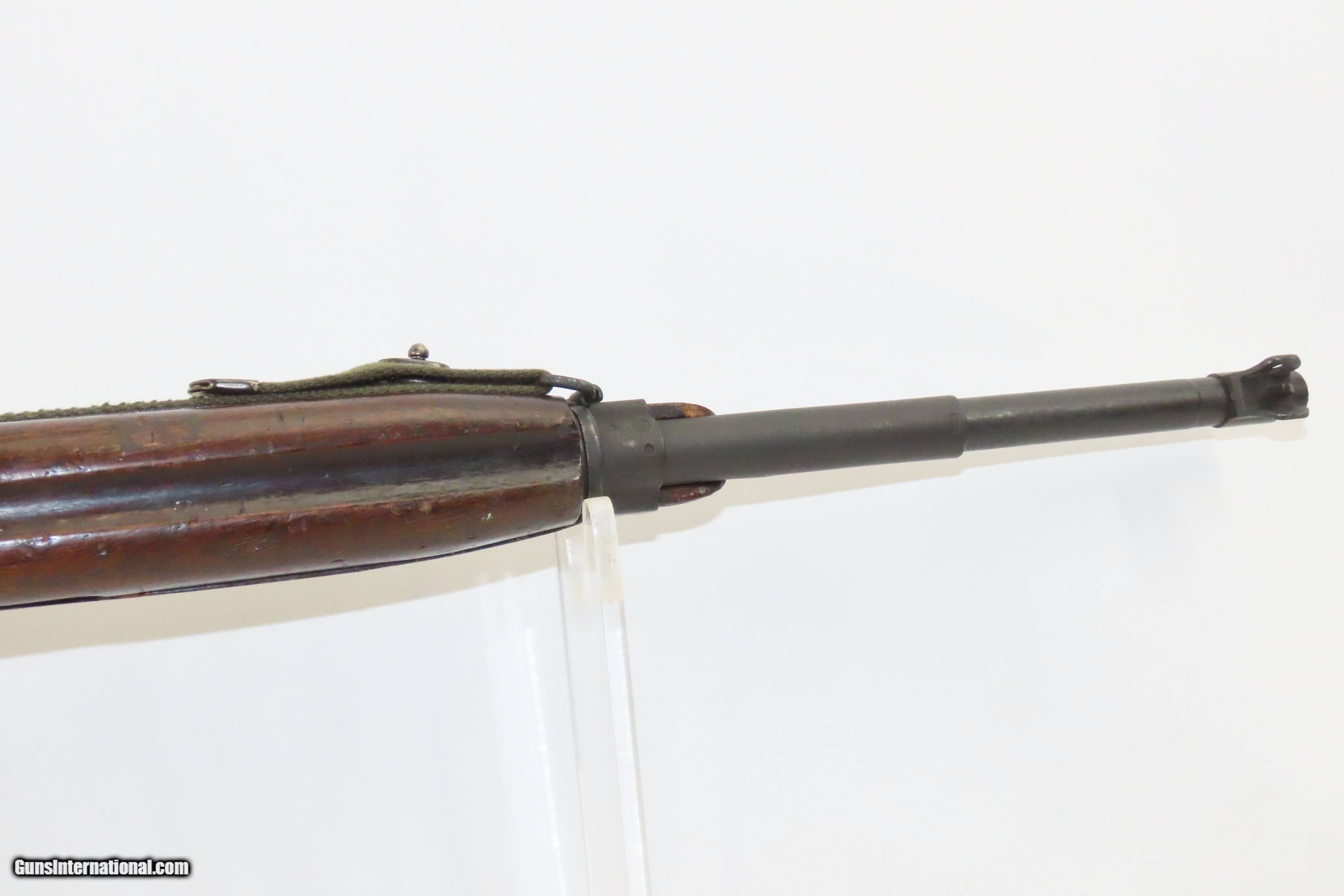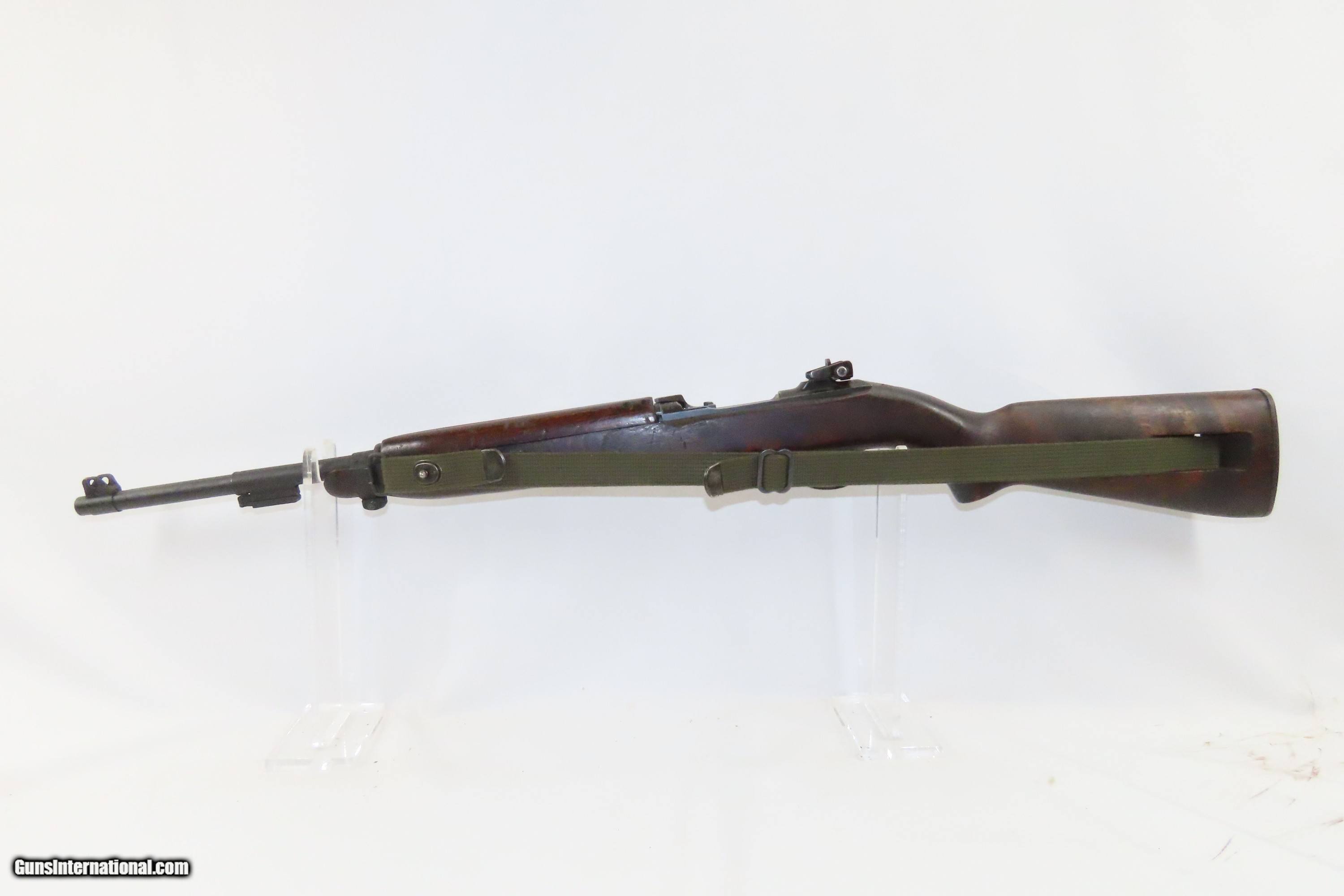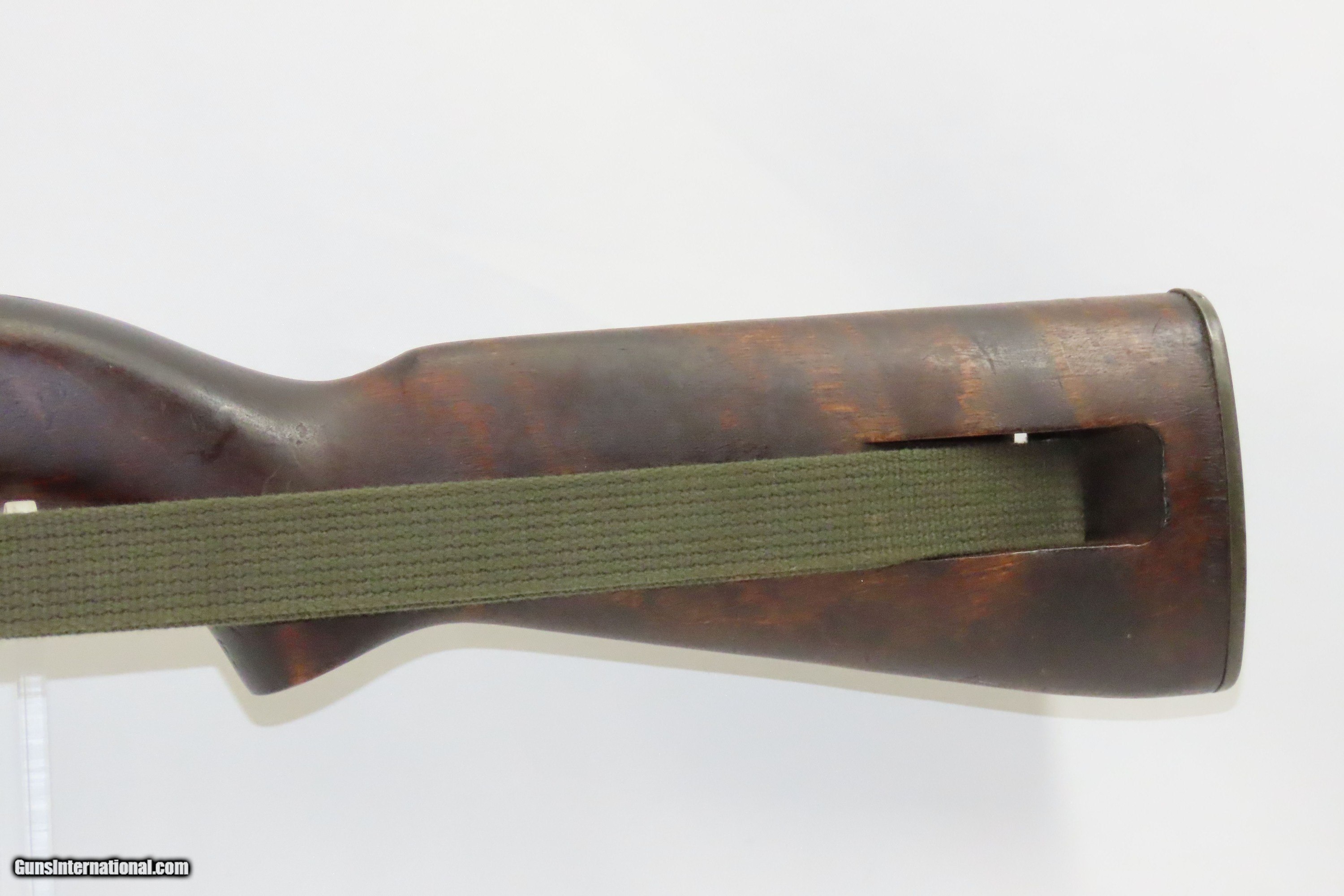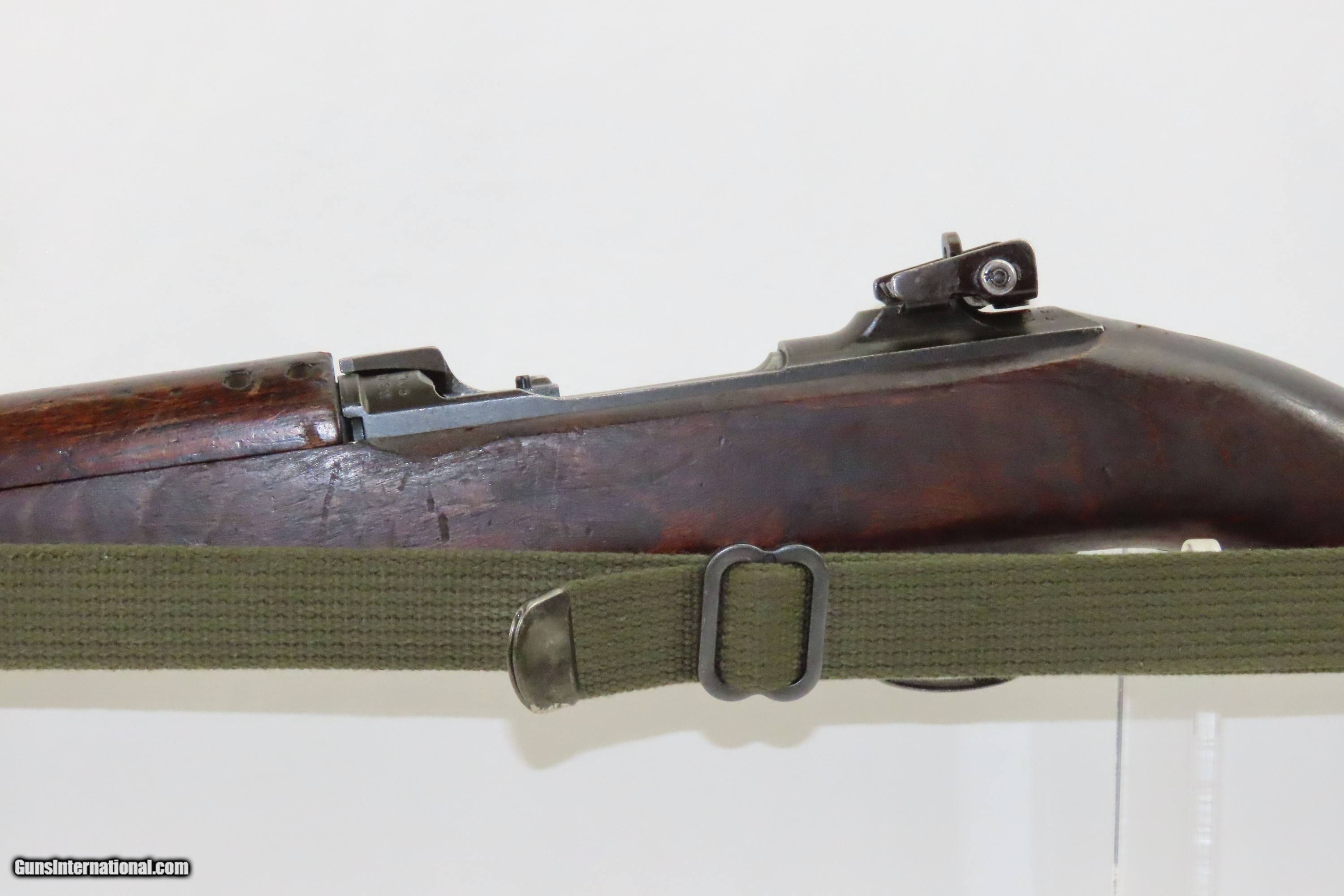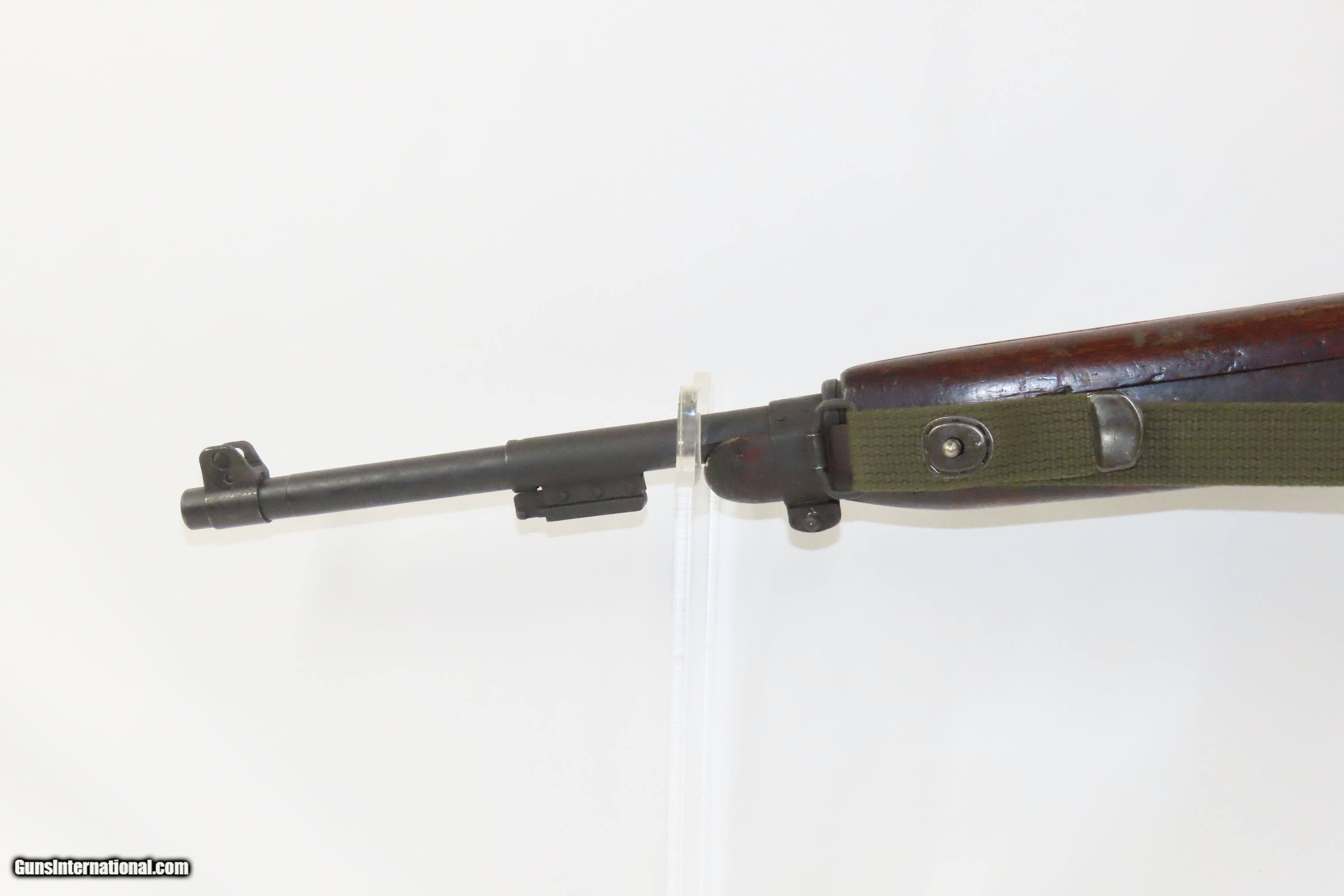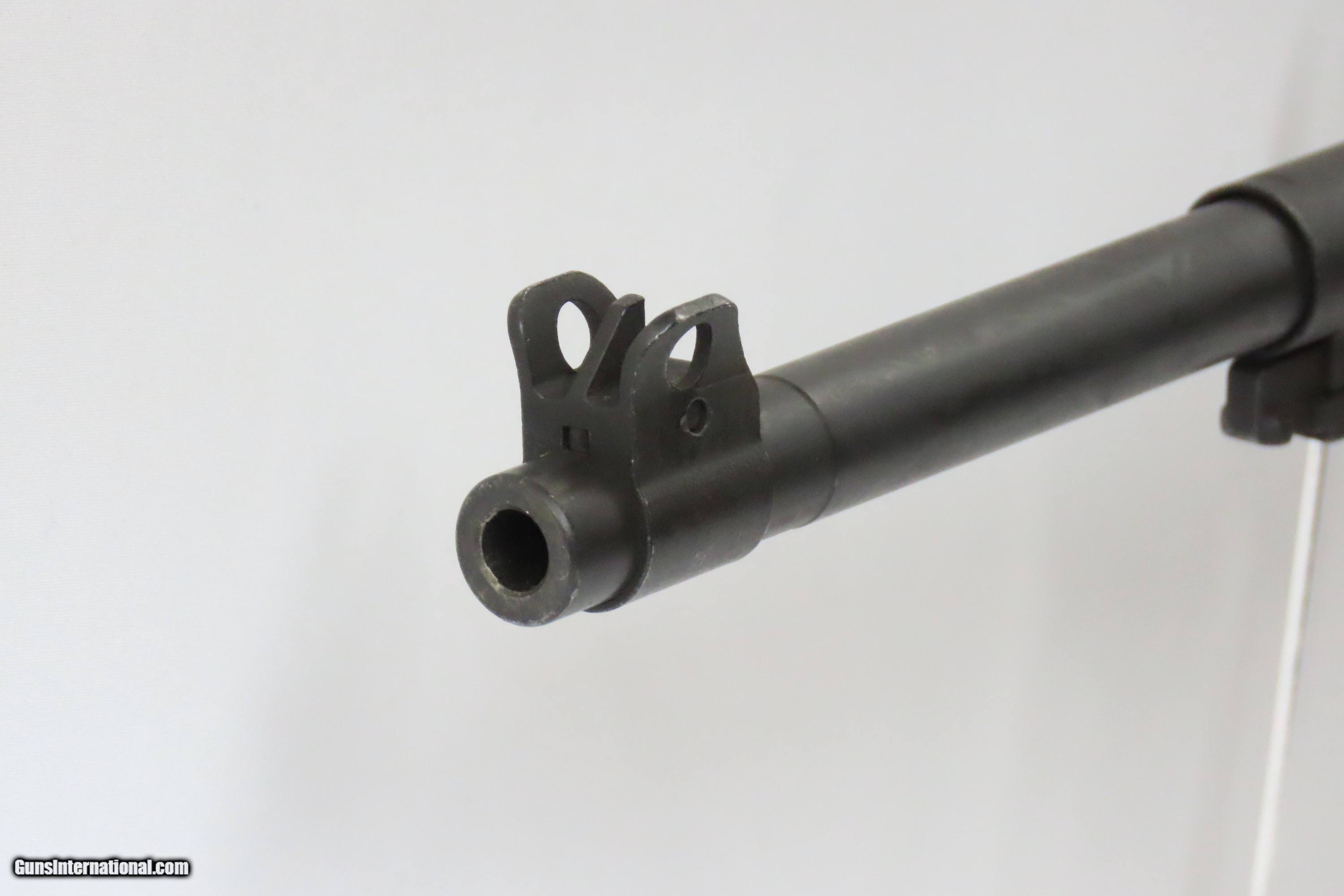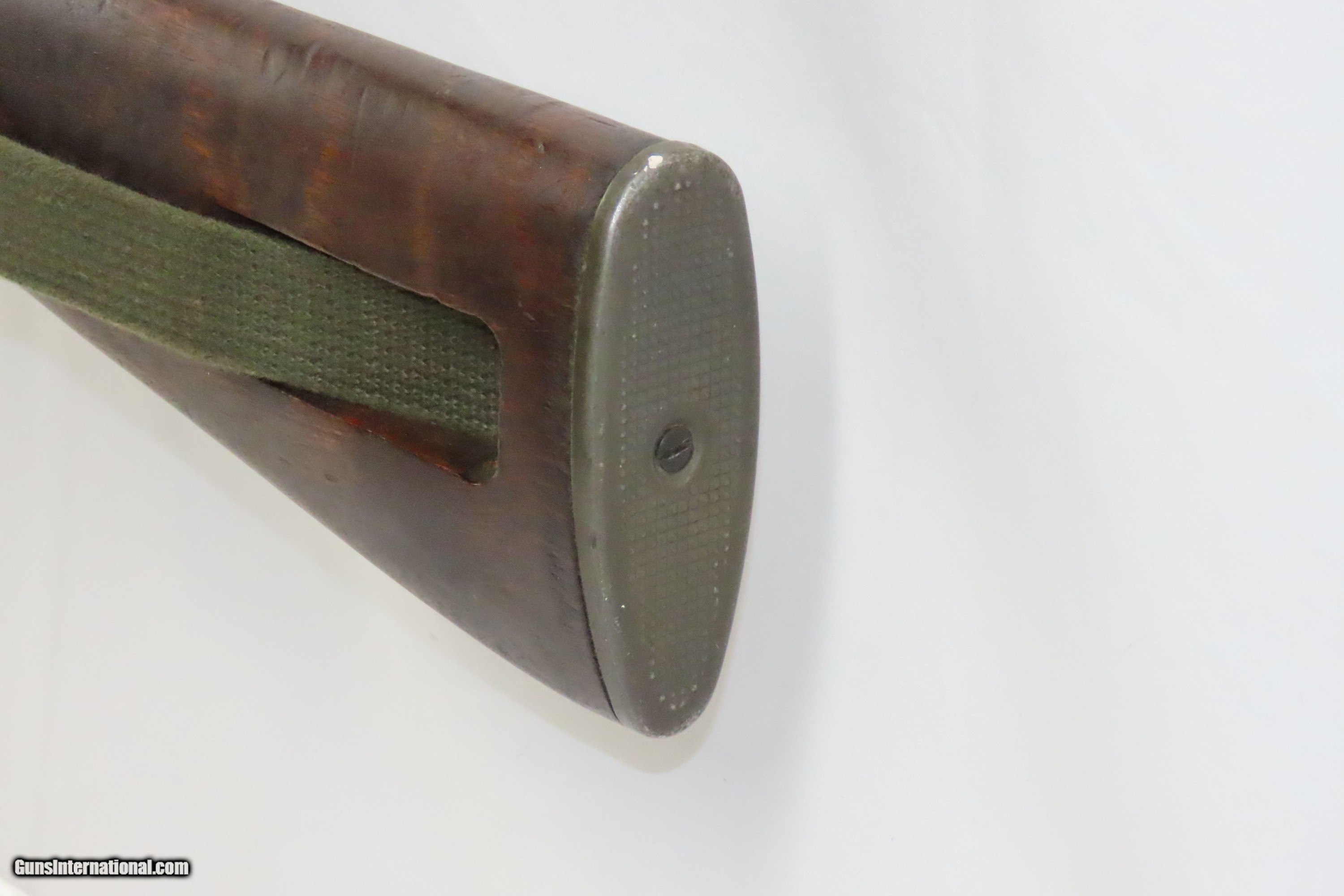Your Session is Ending
 The server has not detected any activity for the last 3 hours.
For your security, your session will expire in 2 minutes and you will be redirected to the Sign In page.
Would you like to stay signed in?
The server has not detected any activity for the last 3 hours.
For your security, your session will expire in 2 minutes and you will be redirected to the Sign In page.
Would you like to stay signed in?
WORLD WAR II Era U.S. INLAND DIVISION M1 Carbine .30 Caliber GM DAYTON OHIO With Canvas Sling, Magazine Pouch, & TWO MAGAZINEs for sale
WORLD WAR II Era U.S. INLAND DIVISION M1 Carbine .30 Caliber GM DAYTON OHIO With Canvas Sling, Magazine Pouch, & TWO MAGAZINEs for sale
Guns International #: 102839595
Seller's Inventory #: 230845
Category - Military Rifles - M1 Carbine
- Military Rifles - US
WORLD WAR II Era U.S. INLAND DIVISION M1 Carbine .30 Caliber GM DAYTON OHIO With Canvas Sling, Magazine Pouch, & TWO MAGAZINEs
Description:
WORLD WAR II Era U.S. INLAND DIVISION M1 Carbine .30 Caliber GM DAYTON OHIO
With Canvas Sling, Magazine Pouch, & TWO MAGAZINEs
Here we present a C&R U.S. Inland M1 Carbine, manufactured in 1944 at the Inland Division of General Motors in Dayton, Ohio. This .30 caliber semi-automatic rifle was first used by the United States Armed Forces on October 22, 1941, and Inland Division was the first of 10 manufacturers to receive an order two months later in November of 1941 and was one of the only two still producing carbines when the war ended in 1945. Of the 6,110,730 carbines made of all types built during the war, Inland made 2,625,000, or 43% of the total. Despite having similar name and appearance, the M1 Carbine is not a carbine version of the M1 Garand rifle. They are different firearms and use different ammunition.
Prior to World War II, U.S. Army Ordnance received many reports that the full-size M1 Garand was too heavy and cumbersome for most support troops, such as mortarmen and radiomen to carry. During prewar and early war field exercises, it was found that the M1 Garand impeded these soldiers' mobility, as a slung rifle would frequently catch on brush, bang the helmet and tilt it over the eyes. Many soldiers found the rifle slid off the shoulder unless slung diagonally across the back, where it prevented the wearing of standard field packs and haversacks. Additionally, Germany's use of glider-borne and paratroop forces to launch surprise ‘blitzkrieg’ attacks behind the front lines generated a request for a new compact infantry weapon to equip support troops. This request called for a compact, lightweight defensive weapon with greater range, accuracy and firepower than handguns, while weighing half as much as the Thompson submachine gun or the M1 rifle. The U.S. Army decided that a carbine would adequately fulfill these requirements and specified that the new arm should weigh no more than five pounds and have an effective range of 300 yards. Paratroopers were also added to the list of intended users and a folding-stock version would also be developed.
The M1 carbine was also one of the most cost-effective weapons used by the United States military during World War II. At the beginning of World War II, the average production cost for an M1 carbine was approximately $45, about half the cost of an M1 rifle at approximately $85 and about a fifth of the cost of a Thompson submachine gun at approximately $225. The .30 Caliber carbine ammunition was also far cheaper to produce than the standard .30-06 ammunition; used fewer resources, was smaller, lighter, faster and easier to make. These were major factors in the United States military decision to adopt the M1 carbine, especially when considering the large numbers of weapons and ammunition manufactured and transported by the United States during World War II.
The overall condition is good. The action is excellent. The bore is shiny bright with strong rifling. The stock has the cross canons mark on the right side and shows use throughout, remaining solid.
This firearm is classified as a Curio & Relic.
Barrel is 18 inches.
Caliber: .30 Carbine
Overall condition as seen in photos.
Very Fast. Very Safe. FREE SHIPPING. Will need to be sent to your local FFL or C&R licensee. This firearm is classified as a Curio & Relic.
Guaranteed AUTHENTIC & Includes CERTIFICATE OF AUTHENTICITY.
ancestryguns
$3000
#230845
Price: $3,000.00 Buy Now
Curio/Relic: Yes
Description:
WORLD WAR II Era U.S. INLAND DIVISION M1 Carbine .30 Caliber GM DAYTON OHIO
With Canvas Sling, Magazine Pouch, & TWO MAGAZINEs
Here we present a C&R U.S. Inland M1 Carbine, manufactured in 1944 at the Inland Division of General Motors in Dayton, Ohio. This .30 caliber semi-automatic rifle was first used by the United States Armed Forces on October 22, 1941, and Inland Division was the first of 10 manufacturers to receive an order two months later in November of 1941 and was one of the only two still producing carbines when the war ended in 1945. Of the 6,110,730 carbines made of all types built during the war, Inland made 2,625,000, or 43% of the total. Despite having similar name and appearance, the M1 Carbine is not a carbine version of the M1 Garand rifle. They are different firearms and use different ammunition.
Prior to World War II, U.S. Army Ordnance received many reports that the full-size M1 Garand was too heavy and cumbersome for most support troops, such as mortarmen and radiomen to carry. During prewar and early war field exercises, it was found that the M1 Garand impeded these soldiers' mobility, as a slung rifle would frequently catch on brush, bang the helmet and tilt it over the eyes. Many soldiers found the rifle slid off the shoulder unless slung diagonally across the back, where it prevented the wearing of standard field packs and haversacks. Additionally, Germany's use of glider-borne and paratroop forces to launch surprise ‘blitzkrieg’ attacks behind the front lines generated a request for a new compact infantry weapon to equip support troops. This request called for a compact, lightweight defensive weapon with greater range, accuracy and firepower than handguns, while weighing half as much as the Thompson submachine gun or the M1 rifle. The U.S. Army decided that a carbine would adequately fulfill these requirements and specified that the new arm should weigh no more than five pounds and have an effective range of 300 yards. Paratroopers were also added to the list of intended users and a folding-stock version would also be developed.
The M1 carbine was also one of the most cost-effective weapons used by the United States military during World War II. At the beginning of World War II, the average production cost for an M1 carbine was approximately $45, about half the cost of an M1 rifle at approximately $85 and about a fifth of the cost of a Thompson submachine gun at approximately $225. The .30 Caliber carbine ammunition was also far cheaper to produce than the standard .30-06 ammunition; used fewer resources, was smaller, lighter, faster and easier to make. These were major factors in the United States military decision to adopt the M1 carbine, especially when considering the large numbers of weapons and ammunition manufactured and transported by the United States during World War II.
The overall condition is good. The action is excellent. The bore is shiny bright with strong rifling. The stock has the cross canons mark on the right side and shows use throughout, remaining solid.
This firearm is classified as a Curio & Relic.
Barrel is 18 inches.
Caliber: .30 Carbine
Overall condition as seen in photos.
Very Fast. Very Safe. FREE SHIPPING. Will need to be sent to your local FFL or C&R licensee. This firearm is classified as a Curio & Relic.
Guaranteed AUTHENTIC & Includes CERTIFICATE OF AUTHENTICITY.
ancestryguns
$3000
#230845
Price: $3,000.00 Buy Now
Curio/Relic: Yes
Contact Seller
Click Photo to Enlarge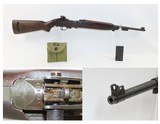
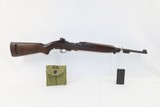
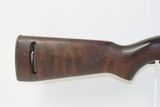
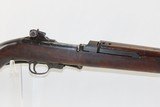
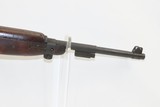
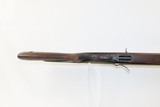
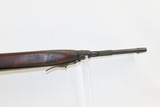
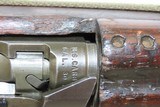
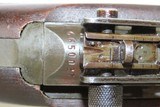
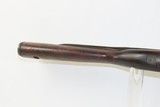
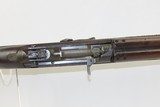
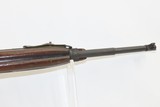
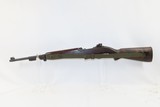
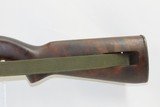
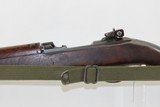
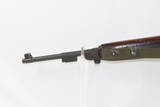
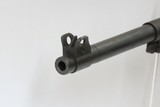
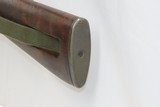
|
Guns International #: 102839595
Category - Military Rifles - M1 Carbine
- Military Rifles - US
WORLD WAR II Era U.S. INLAND DIVISION M1 Carbine .30 Caliber GM DAYTON OHIO With Canvas Sling, Magazine Pouch, & TWO MAGAZINEs
Description: WORLD WAR II Era U.S. INLAND DIVISION M1 Carbine .30 Caliber GM DAYTON OHIO With Canvas Sling, Magazine Pouch, & TWO MAGAZINEs Here we present a C&R U.S. Inland M1 Carbine, manufactured in 1944 at the Inland Division of General Motors in Dayton, Ohio. This .30 caliber semi-automatic rifle was first used by the United States Armed Forces on October 22, 1941, and Inland Division was the first of 10 manufacturers to receive an order two months later in November of 1941 and was one of the only two still producing carbines when the war ended in 1945. Of the 6,110,730 carbines made of all types built during the war, Inland made 2,625,000, or 43% of the total. Despite having similar name and appearance, the M1 Carbine is not a carbine version of the M1 Garand rifle. They are different firearms and use different ammunition. Prior to World War II, U.S. Army Ordnance received many reports that the full-size M1 Garand was too heavy and cumbersome for most support troops, such as mortarmen and radiomen to carry. During prewar and early war field exercises, it was found that the M1 Garand impeded these soldiers' mobility, as a slung rifle would frequently catch on brush, bang the helmet and tilt it over the eyes. Many soldiers found the rifle slid off the shoulder unless slung diagonally across the back, where it prevented the wearing of standard field packs and haversacks. Additionally, Germany's use of glider-borne and paratroop forces to launch surprise ‘blitzkrieg’ attacks behind the front lines generated a request for a new compact infantry weapon to equip support troops. This request called for a compact, lightweight defensive weapon with greater range, accuracy and firepower than handguns, while weighing half as much as the Thompson submachine gun or the M1 rifle. The U.S. Army decided that a carbine would adequately fulfill these requirements and specified that the new arm should weigh no more than five pounds and have an effective range of 300 yards. Paratroopers were also added to the list of intended users and a folding-stock version would also be developed. The M1 carbine was also one of the most cost-effective weapons used by the United States military during World War II. At the beginning of World War II, the average production cost for an M1 carbine was approximately $45, about half the cost of an M1 rifle at approximately $85 and about a fifth of the cost of a Thompson submachine gun at approximately $225. The .30 Caliber carbine ammunition was also far cheaper to produce than the standard .30-06 ammunition; used fewer resources, was smaller, lighter, faster and easier to make. These were major factors in the United States military decision to adopt the M1 carbine, especially when considering the large numbers of weapons and ammunition manufactured and transported by the United States during World War II. The overall condition is good. The action is excellent. The bore is shiny bright with strong rifling. The stock has the cross canons mark on the right side and shows use throughout, remaining solid. This firearm is classified as a Curio & Relic. Barrel is 18 inches. Caliber: .30 Carbine Overall condition as seen in photos. Very Fast. Very Safe. FREE SHIPPING. Will need to be sent to your local FFL or C&R licensee. This firearm is classified as a Curio & Relic. Guaranteed AUTHENTIC & Includes CERTIFICATE OF AUTHENTICITY. ancestryguns $3000 #230845 Price: $3,000.00 Buy Now Curio/Relic: Yes Contact Seller |
Guns International #: 102839595
Seller's Inventory #: 230845
Category - Military Rifles - M1 Carbine
- Military Rifles - US
WORLD WAR II Era U.S. INLAND DIVISION M1 Carbine .30 Caliber GM DAYTON OHIO With Canvas Sling, Magazine Pouch, & TWO MAGAZINEs
Description:
WORLD WAR II Era U.S. INLAND DIVISION M1 Carbine .30 Caliber GM DAYTON OHIO
With Canvas Sling, Magazine Pouch, & TWO MAGAZINEs
Here we present a C&R U.S. Inland M1 Carbine, manufactured in 1944 at the Inland Division of General Motors in Dayton, Ohio. This .30 caliber semi-automatic rifle was first used by the United States Armed Forces on October 22, 1941, and Inland Division was the first of 10 manufacturers to receive an order two months later in November of 1941 and was one of the only two still producing carbines when the war ended in 1945. Of the 6,110,730 carbines made of all types built during the war, Inland made 2,625,000, or 43% of the total. Despite having similar name and appearance, the M1 Carbine is not a carbine version of the M1 Garand rifle. They are different firearms and use different ammunition.
Prior to World War II, U.S. Army Ordnance received many reports that the full-size M1 Garand was too heavy and cumbersome for most support troops, such as mortarmen and radiomen to carry. During prewar and early war field exercises, it was found that the M1 Garand impeded these soldiers' mobility, as a slung rifle would frequently catch on brush, bang the helmet and tilt it over the eyes. Many soldiers found the rifle slid off the shoulder unless slung diagonally across the back, where it prevented the wearing of standard field packs and haversacks. Additionally, Germany's use of glider-borne and paratroop forces to launch surprise ‘blitzkrieg’ attacks behind the front lines generated a request for a new compact infantry weapon to equip support troops. This request called for a compact, lightweight defensive weapon with greater range, accuracy and firepower than handguns, while weighing half as much as the Thompson submachine gun or the M1 rifle. The U.S. Army decided that a carbine would adequately fulfill these requirements and specified that the new arm should weigh no more than five pounds and have an effective range of 300 yards. Paratroopers were also added to the list of intended users and a folding-stock version would also be developed.
The M1 carbine was also one of the most cost-effective weapons used by the United States military during World War II. At the beginning of World War II, the average production cost for an M1 carbine was approximately $45, about half the cost of an M1 rifle at approximately $85 and about a fifth of the cost of a Thompson submachine gun at approximately $225. The .30 Caliber carbine ammunition was also far cheaper to produce than the standard .30-06 ammunition; used fewer resources, was smaller, lighter, faster and easier to make. These were major factors in the United States military decision to adopt the M1 carbine, especially when considering the large numbers of weapons and ammunition manufactured and transported by the United States during World War II.
The overall condition is good. The action is excellent. The bore is shiny bright with strong rifling. The stock has the cross canons mark on the right side and shows use throughout, remaining solid.
This firearm is classified as a Curio & Relic.
Barrel is 18 inches.
Caliber: .30 Carbine
Overall condition as seen in photos.
Very Fast. Very Safe. FREE SHIPPING. Will need to be sent to your local FFL or C&R licensee. This firearm is classified as a Curio & Relic.
Guaranteed AUTHENTIC & Includes CERTIFICATE OF AUTHENTICITY.
ancestryguns
$3000
#230845
Price: $3,000.00 Buy Now
Curio/Relic: Yes
Description:
WORLD WAR II Era U.S. INLAND DIVISION M1 Carbine .30 Caliber GM DAYTON OHIO
With Canvas Sling, Magazine Pouch, & TWO MAGAZINEs
Here we present a C&R U.S. Inland M1 Carbine, manufactured in 1944 at the Inland Division of General Motors in Dayton, Ohio. This .30 caliber semi-automatic rifle was first used by the United States Armed Forces on October 22, 1941, and Inland Division was the first of 10 manufacturers to receive an order two months later in November of 1941 and was one of the only two still producing carbines when the war ended in 1945. Of the 6,110,730 carbines made of all types built during the war, Inland made 2,625,000, or 43% of the total. Despite having similar name and appearance, the M1 Carbine is not a carbine version of the M1 Garand rifle. They are different firearms and use different ammunition.
Prior to World War II, U.S. Army Ordnance received many reports that the full-size M1 Garand was too heavy and cumbersome for most support troops, such as mortarmen and radiomen to carry. During prewar and early war field exercises, it was found that the M1 Garand impeded these soldiers' mobility, as a slung rifle would frequently catch on brush, bang the helmet and tilt it over the eyes. Many soldiers found the rifle slid off the shoulder unless slung diagonally across the back, where it prevented the wearing of standard field packs and haversacks. Additionally, Germany's use of glider-borne and paratroop forces to launch surprise ‘blitzkrieg’ attacks behind the front lines generated a request for a new compact infantry weapon to equip support troops. This request called for a compact, lightweight defensive weapon with greater range, accuracy and firepower than handguns, while weighing half as much as the Thompson submachine gun or the M1 rifle. The U.S. Army decided that a carbine would adequately fulfill these requirements and specified that the new arm should weigh no more than five pounds and have an effective range of 300 yards. Paratroopers were also added to the list of intended users and a folding-stock version would also be developed.
The M1 carbine was also one of the most cost-effective weapons used by the United States military during World War II. At the beginning of World War II, the average production cost for an M1 carbine was approximately $45, about half the cost of an M1 rifle at approximately $85 and about a fifth of the cost of a Thompson submachine gun at approximately $225. The .30 Caliber carbine ammunition was also far cheaper to produce than the standard .30-06 ammunition; used fewer resources, was smaller, lighter, faster and easier to make. These were major factors in the United States military decision to adopt the M1 carbine, especially when considering the large numbers of weapons and ammunition manufactured and transported by the United States during World War II.
The overall condition is good. The action is excellent. The bore is shiny bright with strong rifling. The stock has the cross canons mark on the right side and shows use throughout, remaining solid.
This firearm is classified as a Curio & Relic.
Barrel is 18 inches.
Caliber: .30 Carbine
Overall condition as seen in photos.
Very Fast. Very Safe. FREE SHIPPING. Will need to be sent to your local FFL or C&R licensee. This firearm is classified as a Curio & Relic.
Guaranteed AUTHENTIC & Includes CERTIFICATE OF AUTHENTICITY.
ancestryguns
$3000
#230845
Price: $3,000.00 Buy Now
Curio/Relic: Yes
Guns International #: 102839595
Seller's Inventory #: 230845


Guns International #: 102839595
Seller's Inventory #: 230845
Category - Military Rifles - M1 Carbine
- Military Rifles - US
WORLD WAR II Era U.S. INLAND DIVISION M1 Carbine .30 Caliber GM DAYTON OHIO With Canvas Sling, Magazine Pouch, & TWO MAGAZINEs
Description:
WORLD WAR II Era U.S. INLAND DIVISION M1 Carbine .30 Caliber GM DAYTON OHIO
With Canvas Sling, Magazine Pouch, & TWO MAGAZINEs
Here we present a C&R U.S. Inland M1 Carbine, manufactured in 1944 at the Inland Division of General Motors in Dayton, Ohio. This .30 caliber semi-automatic rifle was first used by the United States Armed Forces on October 22, 1941, and Inland Division was the first of 10 manufacturers to receive an order two months later in November of 1941 and was one of the only two still producing carbines when the war ended in 1945. Of the 6,110,730 carbines made of all types built during the war, Inland made 2,625,000, or 43% of the total. Despite having similar name and appearance, the M1 Carbine is not a carbine version of the M1 Garand rifle. They are different firearms and use different ammunition.
Prior to World War II, U.S. Army Ordnance received many reports that the full-size M1 Garand was too heavy and cumbersome for most support troops, such as mortarmen and radiomen to carry. During prewar and early war field exercises, it was found that the M1 Garand impeded these soldiers' mobility, as a slung rifle would frequently catch on brush, bang the helmet and tilt it over the eyes. Many soldiers found the rifle slid off the shoulder unless slung diagonally across the back, where it prevented the wearing of standard field packs and haversacks. Additionally, Germany's use of glider-borne and paratroop forces to launch surprise ‘blitzkrieg’ attacks behind the front lines generated a request for a new compact infantry weapon to equip support troops. This request called for a compact, lightweight defensive weapon with greater range, accuracy and firepower than handguns, while weighing half as much as the Thompson submachine gun or the M1 rifle. The U.S. Army decided that a carbine would adequately fulfill these requirements and specified that the new arm should weigh no more than five pounds and have an effective range of 300 yards. Paratroopers were also added to the list of intended users and a folding-stock version would also be developed.
The M1 carbine was also one of the most cost-effective weapons used by the United States military during World War II. At the beginning of World War II, the average production cost for an M1 carbine was approximately $45, about half the cost of an M1 rifle at approximately $85 and about a fifth of the cost of a Thompson submachine gun at approximately $225. The .30 Caliber carbine ammunition was also far cheaper to produce than the standard .30-06 ammunition; used fewer resources, was smaller, lighter, faster and easier to make. These were major factors in the United States military decision to adopt the M1 carbine, especially when considering the large numbers of weapons and ammunition manufactured and transported by the United States during World War II.
The overall condition is good. The action is excellent. The bore is shiny bright with strong rifling. The stock has the cross canons mark on the right side and shows use throughout, remaining solid.
This firearm is classified as a Curio & Relic.
Barrel is 18 inches.
Caliber: .30 Carbine
Overall condition as seen in photos.
Very Fast. Very Safe. FREE SHIPPING. Will need to be sent to your local FFL or C&R licensee. This firearm is classified as a Curio & Relic.
Guaranteed AUTHENTIC & Includes CERTIFICATE OF AUTHENTICITY.
ancestryguns
$3000
#230845
Price: $3,000.00 Buy Now
Curio/Relic: Yes
Description:
WORLD WAR II Era U.S. INLAND DIVISION M1 Carbine .30 Caliber GM DAYTON OHIO
With Canvas Sling, Magazine Pouch, & TWO MAGAZINEs
Here we present a C&R U.S. Inland M1 Carbine, manufactured in 1944 at the Inland Division of General Motors in Dayton, Ohio. This .30 caliber semi-automatic rifle was first used by the United States Armed Forces on October 22, 1941, and Inland Division was the first of 10 manufacturers to receive an order two months later in November of 1941 and was one of the only two still producing carbines when the war ended in 1945. Of the 6,110,730 carbines made of all types built during the war, Inland made 2,625,000, or 43% of the total. Despite having similar name and appearance, the M1 Carbine is not a carbine version of the M1 Garand rifle. They are different firearms and use different ammunition.
Prior to World War II, U.S. Army Ordnance received many reports that the full-size M1 Garand was too heavy and cumbersome for most support troops, such as mortarmen and radiomen to carry. During prewar and early war field exercises, it was found that the M1 Garand impeded these soldiers' mobility, as a slung rifle would frequently catch on brush, bang the helmet and tilt it over the eyes. Many soldiers found the rifle slid off the shoulder unless slung diagonally across the back, where it prevented the wearing of standard field packs and haversacks. Additionally, Germany's use of glider-borne and paratroop forces to launch surprise ‘blitzkrieg’ attacks behind the front lines generated a request for a new compact infantry weapon to equip support troops. This request called for a compact, lightweight defensive weapon with greater range, accuracy and firepower than handguns, while weighing half as much as the Thompson submachine gun or the M1 rifle. The U.S. Army decided that a carbine would adequately fulfill these requirements and specified that the new arm should weigh no more than five pounds and have an effective range of 300 yards. Paratroopers were also added to the list of intended users and a folding-stock version would also be developed.
The M1 carbine was also one of the most cost-effective weapons used by the United States military during World War II. At the beginning of World War II, the average production cost for an M1 carbine was approximately $45, about half the cost of an M1 rifle at approximately $85 and about a fifth of the cost of a Thompson submachine gun at approximately $225. The .30 Caliber carbine ammunition was also far cheaper to produce than the standard .30-06 ammunition; used fewer resources, was smaller, lighter, faster and easier to make. These were major factors in the United States military decision to adopt the M1 carbine, especially when considering the large numbers of weapons and ammunition manufactured and transported by the United States during World War II.
The overall condition is good. The action is excellent. The bore is shiny bright with strong rifling. The stock has the cross canons mark on the right side and shows use throughout, remaining solid.
This firearm is classified as a Curio & Relic.
Barrel is 18 inches.
Caliber: .30 Carbine
Overall condition as seen in photos.
Very Fast. Very Safe. FREE SHIPPING. Will need to be sent to your local FFL or C&R licensee. This firearm is classified as a Curio & Relic.
Guaranteed AUTHENTIC & Includes CERTIFICATE OF AUTHENTICITY.
ancestryguns
$3000
#230845
Price: $3,000.00 Buy Now
Curio/Relic: Yes
Contact Seller
Buy Now
Guns International Advertising Policy
GunsInternational.com is the #1 Gun Classified website that brings gun buyers and gun brokers or sellers together through classifed advertising of guns, gun related items and services for sale online. If you are looking to buy guns or sell guns, you have come to the right place. GunsInternational.com gun classifieds currently have over 100,000 guns for sale online by numerous dealers and collectors alike. Guns International makes no representation or warranty as to the accuracy of the information contained in the gun classifieds, gun parts or gun services classifieds listings. Buyers and sellers are required to know and comply with all applicable local, state, federal and international firearm laws.
GunsInternational.com is the #1 Gun Classified website that brings gun buyers and gun brokers or sellers together through classifed advertising of guns, gun related items and services for sale online. If you are looking to buy guns or sell guns, you have come to the right place. GunsInternational.com gun classifieds currently have over 100,000 guns for sale online by numerous dealers and collectors alike. Guns International makes no representation or warranty as to the accuracy of the information contained in the gun classifieds, gun parts or gun services classifieds listings. Buyers and sellers are required to know and comply with all applicable local, state, federal and international firearm laws.
Listings
Home
New Today
New This Week
Rifles For Sale Online
Shotguns For Sale Online
Handguns For Sale Online
Pistols For Sale Online
Revolvers For Sale Online
NFA
Gun Parts For Sale Online
Services
Home
New Today
New This Week
Rifles For Sale Online
Shotguns For Sale Online
Handguns For Sale Online
Pistols For Sale Online
Revolvers For Sale Online
NFA
Gun Parts For Sale Online
Services
©2006 - 2024 all rights reserved. | Guns International.com | V4.1 ww1



Privacy Policy
User Agreement
FAQs
Contact Us
©2006 - 2024 all rights reserved.
Guns International.com | V4.1 ww1
Guns International.com | V4.1 ww1

